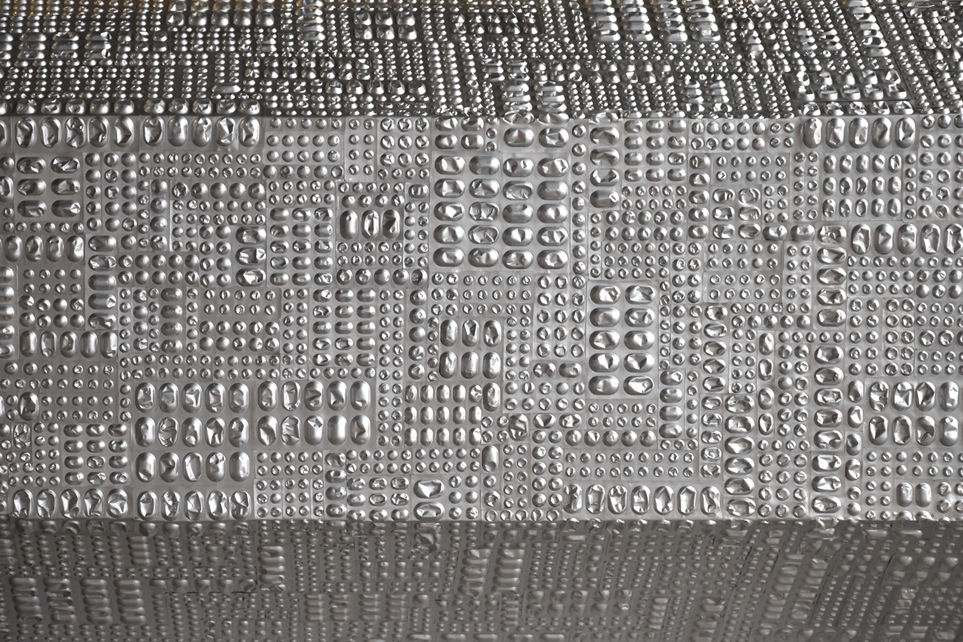POOJAN GUPTA
she/her | b. 1998, Jaipur, India | based in London
Poojan Gupta is an artist and a practice-based researcher based in London. The question she continually responds to as a contemporary artist is how the ordinary can be transformed into something special. On the one hand, she is interested in how everyday human actions can, through ritual, appear to be transcendent and divine, and on the other hand, how trash materials can take on an aesthetic value through the processes of contemporary art. She works with throwaway pharmaceutical empty blister packs. Growing up in India, her culture's daily ritualistic practices suggest to her that, when handled meaningfully, these disposable packets can take on a significance of their own. There are aesthetic and ethical qualities that exceed their quotidian status. She finds that the handleable dimension of the damaged plastic packets generates an enhanced form of attention. Consequently, the punctured and buckled surfaces of blister packs have become her primary mode of expression, and it is the implied sensation of touch that motivates everything she does.
With these thoughts in mind, she has explored different ways of making empty packaging feel aesthetically strange and visually striking through a process of defamiliarization. Here, her visual vocabulary mirrors the repetition of mass production. This involves practices such as casting (in aluminium, brass, resin, concrete, plaster and beeswax), printmaking, drawing, painting, and digitalised forms of reproduction. And, having accumulated a reserve of 30,000 discarded packs using informal networks in India and the UK, she has been able to create larger-scale sculptures using assemblage and installation techniques. In all these experiments the packaging becomes something it was never intended to be. It was meant to be a landfill. Now it approximates minimalist art, and she has developed this idea as the key component of her practice. Gupta’ a aim is to remove boundaries that might separate art, ritualistic practices, environmental concerns from those special feelings we have about the everyday objects we use, but then throw away. Ultimately, she sees her practice as a demand for a change in sensibility.
















